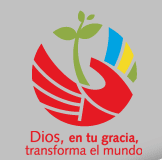Tallinn 27th - 29th November 2005
1. SUMMARY OF THE MEETING
We, the participants (ca 70) to the WCC 9th Assembly in Porto Alegre from the Nordic-Baltic region, have been together in Tallinn to prepare ourselves for the for the upcoming Assembly. We want to express our gratitude to our Estonian hosts.
Through introductions on various issues and discussion both in groups and plenary, we have assembled on a journey towards Porto Alegre. The meeting was for the first time a preparatory meeting for the entire Baltic and Nordic region. We have come together from different historical, cultural and confessional backgrounds. The Baltic churches are still dealing with the consequences of the totalitarian communist regime. One important historical and contextual challenge to many of the Nordic churches is the need to continue the reconciliation process with indigenous peoples.
This paper reflects our dynamics on the way toward the plenary themes. Hence, it is not an exclusive expression of our vision for the WCC. Our hope and prayer for this Assembly is that the welcoming of young people will bring more joy and passion to the whole work for Christian unity.
2. MESSAGE CONCERNING THE WCC
In the process of reconfiguration of the ecumenical movement, we affirm our commitment to the WCC and its vision of unity in all the aspects of being Church. In this process, there is a clear need to connect the process of the CUV to the ongoing conversations. It remains a priority for the WCC to focus on the international work that the individual churches cannot do.
We recognize a need for priorities in the future work of the WCC and will specifically emphasize:
- Strengthening and integrating the Faith and Order work in the whole agenda of the WCC, for example on the various controversial social and ethical issues. The pandemic of HIV/AIDS and the trafficking of human beings should be considered as a challenge to the whole fellowship of the WCC.
- Continuing and strengthening the interfaith relation in
- deepening the reflection on theology of religion, and
- accompanying the churches in local interfaith dialogue, especially in the areas of conflict. - Renewing and strengthening the cooperation with the regional and national bodies as well as the Christian World Communions.
In setting the priorities for the WCC we will also emphasize the need for cohesion between the various programs and commissions.
3. SUMMARY OF OTHER IMPORTANT ISSUES RAISED IN THE GROUPS
A) Reconfiguration of the Ecumenical Movement
We recognize that the WCC was formed in a world different from today. Therefore we
- want to continue the reconfiguration process
- develop the Forum Idea
- strengthen Faith and Order
- affirm the WCC as the privileged instrument for the global ecumenical work
B) Economic Justice and Globalisation
We as European churches share the concerns in the Agape document and are aware of the different aspects, sometimes even painful, and debates over this issue. We specifically share a concern that the rhetoric used in the document does not open for dialogue.
Therefore, to engage in a fruitful discussion in Porto Alegre, we suggest that
- the Agape Call is divided into one prayer and one outline for a discussion that may end in a statement from the Assembly
- encourage the whole WCC to move beyond dividing political borders to be able to agree on strategies for eradication of poverty.
C) Christian Identity and Religious Plurality/Interfaith
WCC should within its framework
- facilitate international dialogue on interfaith issues and politics
- assist churches to engage in local interfaith dialogue, with a special attention to areas of conflicts with a religious dimension
- facilitate theological reflection and dialogue on the specific of the Christian faith in relation to other faith traditions and theology of religions in general.
D) Church Unity and Ecclesiology/Ethics
We have studied and warmly welcomed the document "Called to be the one Church", and have two specific remarks to the text
- an addition of "sexual orientation and disabilities" to nr. 10 is asked for when discrimination is addressed
- there is a lack of recognition of the role of Ministry in the document. Even if we know that it is a matter of disagreement it is important to stress the significance of our understanding of Ministry and who is the host and the giver of gifts in baptism, eucharist and ordination
Dialogue
We emphasize the importance of a continued ecumenical theological dialogue for the work of the WCC.
Ethics and Ecclesiology
- Unity is given to our churches. The concept of church as a eucharistic body has ethical implications. Because members of the church are affected by HIV/AIDS, the church - the body of Christ - is affected. This fact challenges our ecclesiological self understanding.
- It is important that disagreement on ethical issues do not become dividing factor for the eucharistic body.
E) Peace and Decade to Overcome Violence
"The working group on peace and DOV of the Nordic-Baltic preparation meeting for the WCC 9th Assembly proposed that "Shedding Light on Hidden Violence - Taking Action Locally" should be the theme during the 2007 European focus. Hidden violence includes violence that we can not see and violence that we close our eyes to. Churches should empower members in all age groups and at all levels of the church to recognize the different forms of violence and to act against them."

